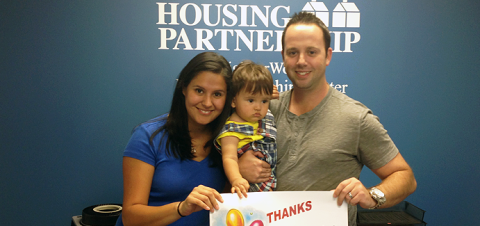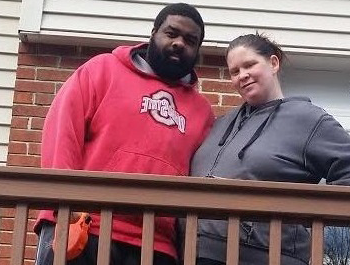Image

Jessica Padilla-Gonzalez, Executive Director, Housing Partnership for Morris County
Challenge: Dover, New Jersey, faces a limited inventory of affordable houses. While new construction is vital, preparing new homeowners to be financially stable is also essential. Yet many organizations lose sight of the people they serve and the services they need, focusing only on the construction of the new homes.
The Housing Partnership for Morris County in Dover, New Jersey, strengthens communities by creating lasting and responsible home ownership through education and financial coaching. Based on their typical client's income and the local housing market prices, it was imperative that the Housing Partnership find affordable mortgage products for which the residents can easily qualify. With the average income of their clients between $40,000 and $60,000 and average home sales prices over $300,000, they needed to explore creative ways to make homeownership a realistic long-term affordable option.
They developed and implemented a system allowing banks to become members of the Housing Partnership, known as Banking Partnership Opportunities. This enables banks to showcase their specially designed first-time homebuyer mortgages to their desired target market. In return, Housing Partnership's clients gain direct access to these loan products, which streamlines the process and reduces the burden of buying. This banking partnership provides direct funding to the organization that is based not on the number of loans the lenders receive but on the quality and benefits that consumers gain from the educational services. Each level comes with different benefits to the lenders, which include speaking opportunities and varying levels of engagement with the organization.
 As members of the Banking Partnership Opportunities, banks can market their Community Reinvestment Act (CRA) loans. In return, the clients who have already completed homebuyer education and are mortgage ready at the time of their loan application can choose to work with one of the enrolled bank members. The products offered also provide clients with affordable financing options that are designed to make homeownership a real possibility. The mortgage products help streamline the buying process for clients by having very clear and defined requirements. Offering benefits such as reduced down payments, no private mortgage insurance and grants to help with closing costs reduces the mortgage payments. The products all require the completion of homebuyer education, as result the homeowners have a better understanding of the financial responsibilities of owning a home.
As members of the Banking Partnership Opportunities, banks can market their Community Reinvestment Act (CRA) loans. In return, the clients who have already completed homebuyer education and are mortgage ready at the time of their loan application can choose to work with one of the enrolled bank members. The products offered also provide clients with affordable financing options that are designed to make homeownership a real possibility. The mortgage products help streamline the buying process for clients by having very clear and defined requirements. Offering benefits such as reduced down payments, no private mortgage insurance and grants to help with closing costs reduces the mortgage payments. The products all require the completion of homebuyer education, as result the homeowners have a better understanding of the financial responsibilities of owning a home.In 2015, the Housing Partnership was proud to assist 100 new homebuyers into their first homes. This was, in part, a result of the banking member offering products meeting their client's needs, the collaboration between the organizations and what the banks require for success in awarding CRA credits. The ultimate goal of meeting the client's needs comes full circle with the partnership opportunity.
The three most critical lessons learned from this effort are:
- Lenders have a system in place for funding (CRA credits) but creating a partnership and collaboration between the organization, the banking industry and the community provides a better match for clients. In the end, the clients win by being given options otherwise unavailable.
- A cross-sector partnership works in everyone's favor and reduces the duplication of efforts. It allows for the nonprofit to focus on education for the clients and for mortgage companies to improve the services offered to the clients and community. It also creates a healthy competition among the financial members who want to serve the homebuyers.
- You must be an advocate for your organization's mission and the clients you serve. Corporations understand that we are the voices for those in the underserved populations and should never underestimate the scope of our ability to make positive change for them.

